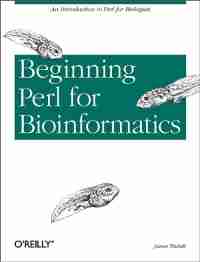Faster previews. Personalized experience.
Get started with a FREE account.


by brian d foy
390 Pages
·
2011
·
3,718 Downloads
·
New!
If you’re just getting started with Perl, this is the book you want-whether you’re a programmer, system administrator, or web hacker. Nicknamed “the Llama” by two generations of users, this bestseller closely follows the popular introductory Perl course taught by the authors since 1991. This 6th edition covers recent changes to the language up to version 5.14.

by Johan Vromans
102 Pages
·
2011
·
2,369 Downloads
·
New!
If you have a Perl programming question, you’ll find the answer quickly in this handy, easy-to-use quick reference. The Perl Pocket Reference condenses and organizes stacks of documentation down to the most essential facts, so you can find what you need in a heartbeat.

by Jon Orwant
592 Pages
·
2003
·
3,973 Downloads
·
New!
The Perl Journal (TPJ) did something most print journals aspire to, but few succeed. Within a remarkable short time, TPJ acquired a cult-following and became the voice of the Perl community. Every serious Perl programmer subscribed to it, and every notable Perl guru jumped at the opportunity to write for it. Back issues were swapped like trading cards. No longer in print format, TPJ remains the quintessential spirit of Perl – a publication for and by Perl programmers who see fun and beauty in an admittedly quirky little language.

by Sean M. Burke
264 Pages
·
2002
·
4,440 Downloads
·
New!
Perl soared to popularity as a language for creating and managing web content, but with LWP (Library for WWW in Perl), Perl is equally adept at consuming information on the Web. LWP is a suite of modules for fetching and processing web pages.

by Erik T. Ray
216 Pages
·
2002
·
1,194 Downloads
·
New!
XML is a text-based markup language that has taken the programming world by storm. More powerful than HTML yet less demanding than SGML, XML has proven itself to be flexible and resilient. XML is the perfect tool for formatting documents with even the smallest bit of complexity, from Web pages to legal contracts to books. However, XML has also proven itself to be indispensable for organizing and conveying other sorts of data as well, thus its central role in web services like SOAP and XML-RPC.

by Jarkko Hietaniemi
704 Pages
·
1999
·
4,969 Downloads
·
New!
Many programmers would love to use Perl for projects that involve heavy lifting, but miss the many traditional algorithms that textbooks teach for other languages. Computer scientists have identified many techniques that a wide range of programs need, such as: Fuzzy pattern matching for text (identify misspellings!), Finding correlations in data, Game-playing algorithms, Predicting phenomena such as Web traffic, Polynomial and spline fitting.